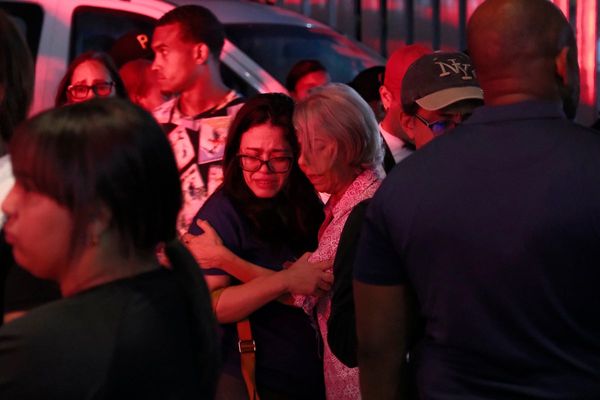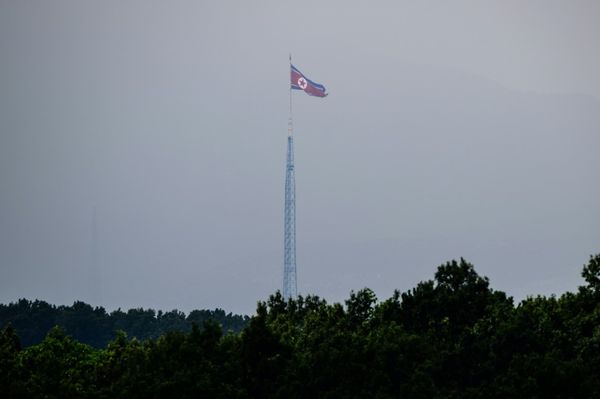To protect her privacy, her name in court records is Jane Doe 22-B.
But what’s supposed to shelter this 16-year-old pregnant girl, in reality, silences and dehumanizes Jane, a victim of Florida’s partisan abortion wars.
Her case has garnered headlines recently, yet she has no public voice, no say about any of what’s happening to her outside of conversations with those in charge of her life. And she has no power, it seems, to sway the justice system either.
People are judging her, making decisions for her, yet she cannot tell us her own, full story.
She’s only Jane Doe 22-B, the first case we hear about in the aftermath of a bitter legislative session where the rights of many Floridians, women among them, were curtailed. But she’s most likely not the first nor the only one in her predicament.
Her guardian, the state of Florida, will only release some facts: She’s parentless, has been through trauma, lives with a relative — and is 10 weeks pregnant.
Although the adult relative supports Jane’s wish to get an abortion, an Escambia County judge has ruled that she lacks the maturity to be allowed to terminate the pregnancy.
What sequence of logic could possibly lead Judge Jennifer J. Frydrychowicz to reason that Jane would be any more mature in becoming a parent?
By denying Jane permission to get an abortion, the judge is sentencing a teenager to giving birth. There’s no other alternative.
The fact that Frydrychowicz left open the possibility of revisiting her decision leaves hope on the table. But it could become a moot point. If she doesn’t reverse herself soon, Florida’s ban on abortion after 15 weeks kicks in.
Teen pregnancy a health risk
All of this condemns Jane to further trauma — and puts her life at risk.
Complications during pregnancy and childbirth are the leading causes of death for girls 15-19 years old worldwide, according to the World Health Organization.
I’ve given birth three times as an adult with a supportive husband and family all around me. I don’t have to speculate. I can easily imagine how much more traumatic the experience would be for a teenager. The physical trauma and the pain, the sheer horror at times, that women endure to become mothers should not be something girls do.
Add the psychological trauma of giving birth after being forced to carry an unwanted pregnancy by a court order. A fate dictated by a pack of legislators carving political careers out of catering to the point of view of one conservative religious base.
Have people become so enamored of their politicians that they can’t put themselves in Jane’s shoes?
A girl with dreams
Jane is a girl, not a woman in command of her life with the tools and support to become a mother.
A girl her age has a lot of dreams — big ones that may seem beyond her reach but nurse her soul, and small ones that adults too often set for girls. Being forced by the government to give birth, however — when a timely abortion is possible — isn’t among them.
We know this because Jane asked Frydrychowicz to allow her to have an abortion. The judge’s rejection has made her case public. Had she said yes, we might have never heard about Jane’s predicament and what it could mean for other girls.
Referendum on abortion rights
Her case is now a referendum, not only on a previous legislative session’s abortion law mandating that minors get parental or court permission to get an abortion, but also a test of how cruel state authorities are willing to be to enforce this year’s 15-week restriction on a woman’s right to choose.
Part of the problem with the debate over abortion rights is that we don’t often get to know the girls and women affected by laws passed mostly by men.
But think of the extremes to which parents go when teenage boys get in trouble. They hire the best lawyer, bail them out of jail, etc., but their bodies being violated isn’t part of the resolution. Certainly, no one orders vasectomies for men or boys who impregnate.
But for a girl, a mistake, a rape, a spiked drink means a life sentence before she has seen a judge — and now, afterward, too. Because even the sympathetic ones will have their hands tied in states like Florida.
Jane 22-B isn’t just a pseudonym on a court docket.
She has a face, that of a 14-year-old cousin from long ago.
Her strict parents sent her to an all-girls Catholic School in Miami to keep her away from boys. Still, she fell in love, ran away from school when the guard wasn’t looking and jumped in her boyfriend’s car. By the time they ran out of gas headed to Tampa, she was already pregnant.
Her parents forced her to give birth, but they couldn’t force her to love the baby.
She ran away from home, from them and the fate they had chosen for her, leaving the adults to raise her unloved child.
For this family, forever broken and estranged, the wounds of a forced pregnancy and childbirth have never healed.
But for Jane Doe 22-B, perhaps, there’s still a sliver of time to deliver a better fate: the freedom to choose.
____







